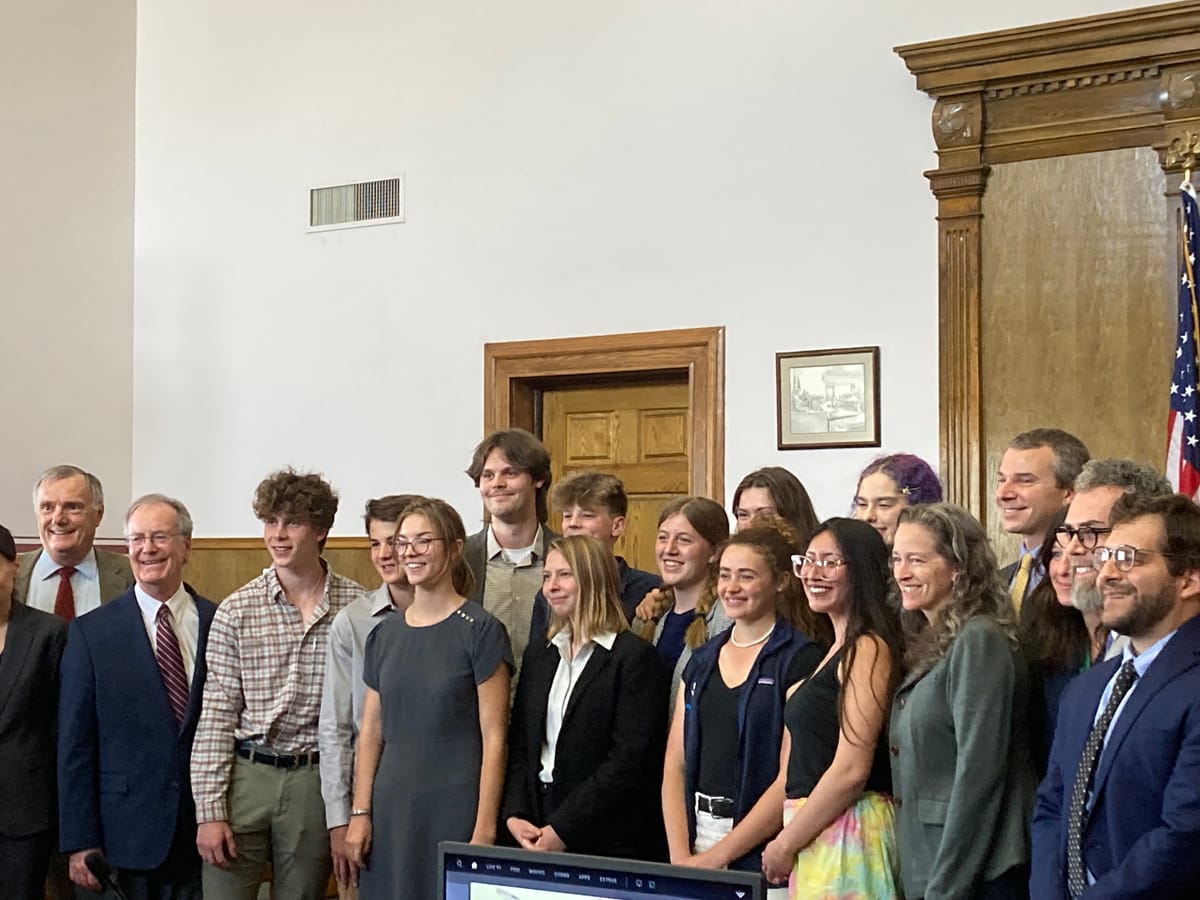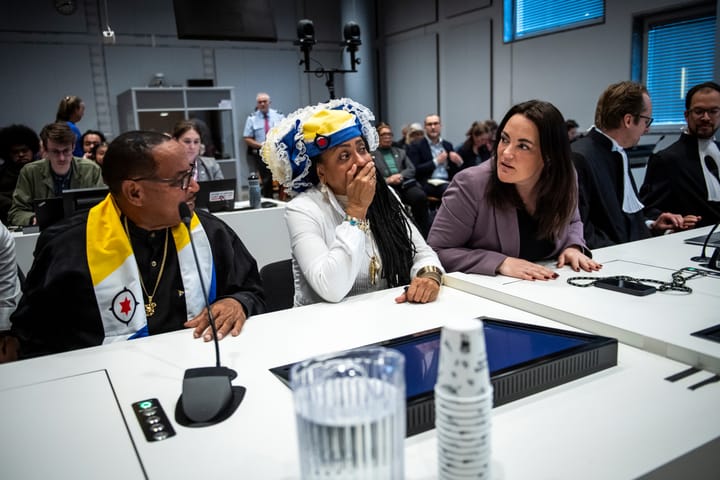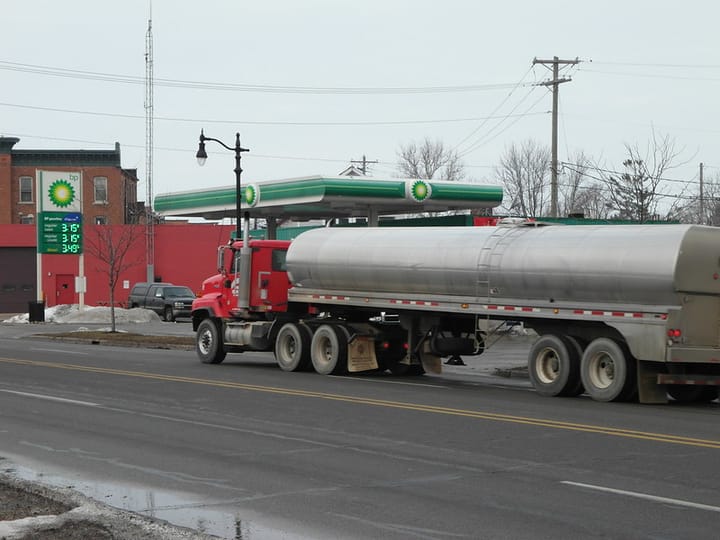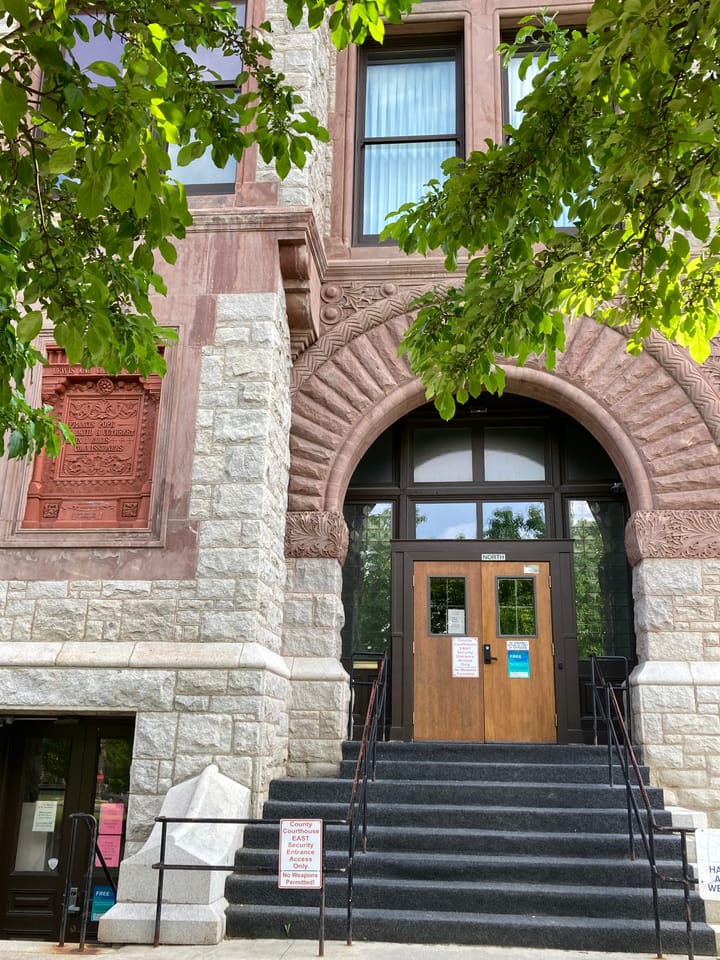A Federal Court Dismissed A Youth-Led Legal Challenge To Trump’s Fossil Fuel Orders. Now What?

Youth activists are appealing the ruling, demanding action and that their “voices be heard.”
The 22 young Americans suing President Donald Trump and his administration over executive orders that “unleash” fossil fuels during a time of accelerating climate breakdown are refusing to back down following a recent ruling from a federal district court judge dismissing their case on procedural grounds.
Lawyers for youth plaintiffs in the case Lighthiser v. Trump filed a notice of appeal on October 20 in response to U.S. District Judge Dana Christensen’s October 15 decision granting the government defendants’ motion to dismiss the suit. That decision was based on a 2020 ruling from the Ninth Circuit Court of Appeals ordering dismissal in another youth climate case against the federal government – Juliana v. United States – which Christensen viewed as binding precedent. The Lighthiser case will now be going up to this same court, the Ninth Circuit, on appeal.
The case, which is named after 19-year-old lead plaintiff Eva Lighthiser, is markedly different than the previous Juliana case, the plaintiffs and their lawyers argue. For starters, they say their case challenges different conduct. Rather than take issue with the federal government’s systemic policies and practices of perpetuating a fossil fuel-based energy system going back decades, the Lighthiser case challenges three specific executive orders issued by President Trump. These orders – Unleashing American Energy; Declaring a National Energy Emergency; and Reinvigorating America’s Beautiful Clean Coal Industry – are expected to result in emissions of more than 200 million metric tons of additional carbon pollution over the next two years, exacerbating the climate emergency that is already harming children’s health, safety, and quality of life, thereby violating youth plaintiffs’ constitutional rights to life and liberty, the case contends. It also claims that Trump’s orders are ultra vires, meaning they exceed his lawful authority, arguing the orders conflict with or undermine other federal laws. That kind of claim of executive overreach was never made in the Juliana case.
Christensen, however, determined that the two cases “nonetheless share several important characteristics,” particularly in terms of the requested relief. Even if the government’s conduct were found to be unconstitutional, for a court to monitor compliance going forward it would have to wade into complex matters of government policymaking, which is “beyond the power” of a court to do, he reasoned. The court “would be required to monitor an untold number of federal agency actions,” Christensen wrote in his ruling, which he said “is, quite simply, an unworkable request.” As in the Juliana case, Christensen “reluctantly” concluded that plaintiffs’ requested relief in Lighthiser was too sweeping in scope for a court to handle.
Lighthiser v. Trump, which was filed on May 29, 2025 by the nonprofit law firm Our Children’s Trust along with the organization Public Justice and other partners, sought not only a court declaration that the challenged executive orders were unconstitutional, but also an order blocking their implementation. The 22 youth plaintiffs also requested a preliminary injunction – on order from the court to halt all actions under the challenged executive orders while the case continues to play out. The court held a two-day hearing on that request as well as on government defendants’ motions to dismiss in September in Missoula, Montana.
Miko Vergun, a 24-year-old plaintiff from Beaverton, Oregon, was in the courtroom for that historic hearing, which was the first time a U.S. federal court heard live youth testimony in a constitutional climate case.
“When [the judge] walked into court the first day he said he had read all of the pages of our arguments and everything, and so my first impression of him was that he really took the time to read and to hear us out,” Miko told Climate in the Courts. “I was optimistic thinking that we would get a good ruling and that he would send us to trial.”
“Even though I’ve experienced disappointment before, I was kind of thinking this would be a little different,” Miko, who was also a plaintiff in the Juliana case, added. “I was honestly very sad.”
Other plaintiffs had similar reactions of disappointment and dismay to Christensen’s ruling, especially given that he acknowledged the harms that are worsening as the climate crisis unfolds, even going so far as to call it a “children’s health emergency.” But such concern, Christensen wrote, “does not automatically confer upon [the court] the power to act.”
“How can the judge see us, see how we're being harmed, and then not do anything about it? We need action, not sympathy,” said plaintiff Taleah Hernandez.
Plaintiff Olivia Vesovich said she felt “incredibly devastated” by the ruling. “It is a gut-punch to hear the court acknowledge that the administration is harming us and the court dismissed the case anyway.”
Olivia, Taleah, and some of the other plaintiffs including lead plaintiff Eva Lighthiser, successfully challenged an anti-climate policy enacted by their state government in Montana in the landmark Held v. Montana youth climate case – the first-ever case of its kind in U.S. history to go to trial, and win.
Montana, along with 18 other Republican-led states and the U.S. territory of Guam, intervened in the Lighthiser case on the side of the Trump administration. In a statement responding to Christensen’s ruling, Montana Attorney General Austin Knudsen said he is “pleased the rule of law prevailed today” and slammed the case as “just another show trial contrived by climate activists who wasted the taxpayer’s money.”
Legal experts and lawyers representing the youth plaintiffs, however, say the ruling is a troubling sign at a time when the climate crisis is accelerating and democratic norms and institutions in the U.S. are under attack.
“What’s disappointing about Judge Christensen’s opinion is that, it yet again, with another warmest year in human history, it denies even the opportunity to make a case,” James May, distinguished professor of law at Washburn University, told Climate in the Courts. “To me, as a constitutional law professor and a human rights lawyer for 30+ years, that seems anti-democratic, anti-representational.”
“When the president goes big with his unconstitutional executive directives, that’s precisely when the courts need to step in,” said Julia Olson, chief legal counsel at Our Children’s Trust and lead attorney for the plaintiffs. “These are huge violations of fundamental rights. And there’s nothing in our Constitution that says, because something is a huge violation, courts can’t touch it.”
“We won’t be silenced”
For the youth activists, their fight against the Trump administration’s fossil fuel frenzy is far from over. While Christensen denied the plaintiffs any opportunity to amend their complaint, he did leave the door open for the Ninth Circuit Court of Appeals to reverse his ruling.
“We’re going to ask the Ninth Circuit to do just that,” Olson said. She noted they would try to pursue an expedited appeal.
According to a time schedule order in the case docket, plaintiffs’ opening brief is due by January 12, 2026. The answering brief from federal defendants and state intervenors is due one month later.
Meanwhile, the Trump administration is continuing to take numerous actions boosting fossil fuels in following the president’s directives. Just last week the U.S. Department of Energy (DOE) announced it is offering $100 million in funding to “restore” existing coal plants. That follows a September announcement from the DOE to invest $625 million to expand and reinvigorate the coal industry. These efforts, the Department says, support Trump’s coal-focused executive orders, including one that the Lighthiser plaintiffs had challenged.
The plaintiffs, for their part, say they remain undeterred.
“I’m glad that we have this opportunity to appeal,” Miko told Climate in the Courts.
“This appeal is our way of saying we won't be silenced while our rights are violated,” Taleah said.
“Coral reefs have just reached a catastrophic tipping point and our emissions have still not gone down. The planet needs our courage. Our voices. Our action,” lead plaintiff Eva said in a statement. “Despite how disheartening this news is, we don’t have the luxury of time. We will continue demanding our voices be heard.”


